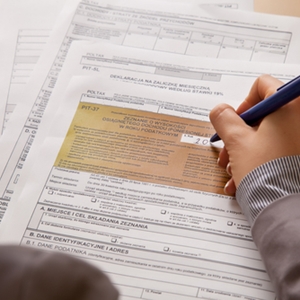
Common small business deductions
June 22, 2016 11:09 am Leave your thoughts
If you are a small business owner, tax season can feel like impending doom. Even with the help of a business attorney to establish your company as its own separate entity, it can be difficult to know what can and cannot be deducted. While your individual deductions may vary depending on the kind of business you are running, here are a few standard deductions that many small business owners can make, and here's how to best keep track of these costs.
"It can be difficult to know what can be deducted and what cannot."
Automotive expenses
Unless you operate a business out of your home, you will need to use a car to get to and from work. This makes automotive expenses some of the most important deductions for a small business owner and operator. The gas you purchased, repair and maintenance fees, tolls and parking meter fees and even the cost of a new vehicle are potentially deductible. Keeping track of these expenses takes two forms:
- Actual – This measures what you actually spent to keep a vehicle on the road and requires tracking of all receipts.
- Standard mileage rate – Often simpler and requiring less paperwork, the IRS allows for business owners to take a standard deduction based on how much you drove over the year.
Home office
Not driving to work? You can still make deductions based on the location of your workspace – even if it's within your own home. A space that remains exclusively devoted to your business – as opposed to a part of your home that gets other use in addition to work – is deductible. Additionally, your home utility bills like electricity and wireless internet may also be partially deductible. By determining the square footage of your workspace in comparison to the rest of your home, you can deduct a corresponding percentage of bills.
Employee pay and benefits
Deducting employee pay requires keeping track of how you compensated your employees. Pay can be deducted as long as it's in the form of cash, property or services. Likewise, benefits such as health insurance, retirement plans, pensions, stock options, profit-sharing and educational assistance plans are typically tax deductible.
"The most important thing you can do is to document as much a you can."
Advertising and marketing
Expenses related directly to promoting your business – including web, print or broadcast ads as well as items like custom stationary or business cards – are tax deductible. Even semi-charitable activities like sponsoring a local sports team can be deducted as a form of advertising.
Costs of starting a business
It is common knowledge that business are expensive to start and often do not see profit until after several years of operation. Luckily, the IRS allows for business owners to make deductions based on operating at a net loss. Capital expenses are deductible up to $5,000 the first year you're in business. After that, your expenses are deductive in equal increments for the following 15 years.
The most important thing you can do is to document as much as possible. In the event of an audit, your ability to show diligence and careful record-keeping will help mitigate any potential fines and liabilities.
Additionally, making sure your enterprise is in good legal standing is key. The Law Offices of Donald W. Hudspeth, P.C., have extensive experience working with business owners. Having the proper asset liability protection in place can make all the difference if the IRS becomes involved. Contact us today to find out more.
Categorised in: Arizona LLCs, Asset & Liability Protection, Business Law, C-Corporations & S-Corporations, Starting a Business in Arizona
This post was written by





